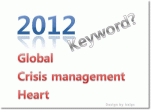|
 |
두바이 : 무한 상상력과 창조적 리더 |
|
| ���� | 서정민 |
| ���ǻ� | 글로연 |
|
 |
서구, 힘을 합쳐 중국에 저항하다 |
|
| 홍콩에서 대만, 남중국해에 이르기까지 오늘날 중국은 점점 더 세계에 과감하게 그들의 힘을 드러내려 하고 있다. 그러나 이러한 중국에 대한 미국의 견제는 더욱 더 강력해지고 있다. 미국은 동맹국들이 모두 이 견제에 참여하길 바란다. 두 초강대국 간의 갈등 속에서 앞으로 어떤 일들이 일어날 것인가? |
|
|
 |
[RH] 디지털 기술을 일터에 성공적 |
|
| ‘오거나이제이션 사이언스(Organization Science)’ 저널에 실린 MIT 슬로안 경영대학원(MIT Sloan School of Management)의 연구에 따르면, 새로운 기술을 일터에 도입할 때 그것은 매우 실질적이어야 한다는 사실이 밝혀졌다. |
|
|
 |
21세기 노다지를 약속하는 자동화 과 |
|
| 인간이 수행하는 과학 실험과 발견에는 한계가 존재한다. 하지만 인공지능과 컴퓨팅, 로봇을 통한 과학 실험과 발견에는 한계가 없다. 오늘날, 이러한 새로운 과학 실험과 발견에 대한 거대한 움직임이 이미 시작되었다. 현재 어떤 일이 일어나고 있는가? |
|
|
 |
글로벌 리스크 관리의 新시대 |
|
| 최근의 금융 위기는 모두에게 리스크 관리의 근본적인 실체와 조우하게 만들었다. 사실 엄청난 리스크를 감수할 수만 있다면 그에 상응하는 엄청난 수익을 벌어들일 수 있을 것이다. 최근 출간된 수많은 서적들과 보도가 보여주는 것처럼, 개별적 리스크의 ‘정규 분포’를 추정하는 표준 관행은 그다지 신중하지 못할 때가 있다. 매우 드물어 보이기는 하지만, 격변하는 사건은 대다수 사람들이 인정하고자 하는 것보다 훨씬 자주 발생하며 그러한 리스크는 사전에 신중하게 받아들여지지 않는 경향이 다분하다.<br> |
|
|






 [67]��
[67]�� 




